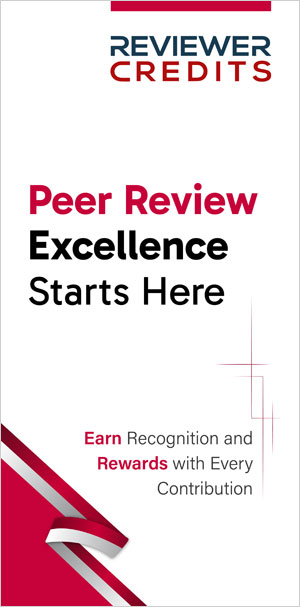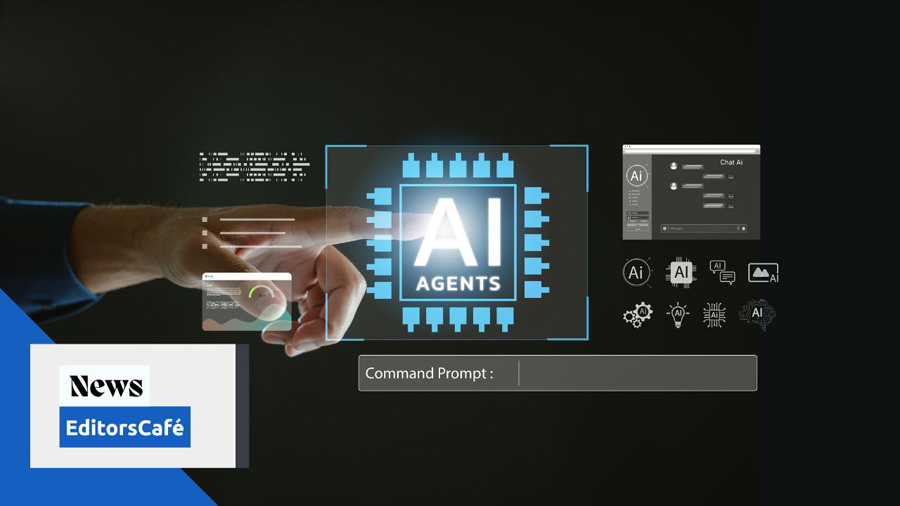Comments
Abdelazim Negm
05 October, 2024I enjoyed reading this post and happy to learn about "Eliza". It is a very good step is reviewers can have free access to "Eliza" to enable them to provide efficient review in a shorter time.
Ghodrat Karami
06 October, 2024
AI is currently used partly for formatting and to correct grammar errors for the authors. Why it shouldn't be used for the review? That is what is expected, and we go for that.
Dr. Farhana Maqbool
06 October, 2024Hopefully it will reduce the biasness of reviewer's attitude from well-known to new scientist's publications, and from advance to developing countries authors.
Dr. GHULAM HASSAN DAR
06 October, 2024Surely it is the need of hour to reduce heavy burdens on the Chief editors and publishers and have transparent policy in peer review process
Khalid Mahmood Khawar
06 October, 2024How can I download this application for use? Is it free?
Ibrahim Draz
07 October, 2024World Brain's Eliza tool harnesses AI to improve peer review efficiency and quality, addressing the challenges of increasing submissions in academic publishing
Josiah Chidiebere Okonkwo
08 October, 2024I doff my cap for World Brain for developing this all powerful tool- Eliza for reviewers. I hope it will be made available.
Dr. Ayaz H. Khan
09 October, 2024
It will be good if there is a trial version of Eliza to get insights about it. Right now, it seems that it is only for demo purposes.
A trial version or video demo may help in taking decisions for the reviewers and companies to move forward with the communication with the WBS.
Abhaya Balasuriya
14 October, 2024It certainly is a very welcome idea/tool! I congratulate Zeger Karssen (the developer) for this naive attempt! However, there should be some room left for those dedicated reviewers to have their own input in order to customize the reviewing! When everything is delivered on a platter, one might lose the onerous of doing such a sacred job! Is this going to be available for free download?
Zeger Karssen
14 October, 2024
Thank you for your great comments. Eliza is a currently in a pilot-phase and we're interested in setting up pilots with publishers or societies. Please see here if you are interested in further details and contacting us: https://www.world-brain-scholar.eu.
Also, our Peer Review Week webinar including a demo of Eliza can be see here: https://vimeo.com/1014239173.
Prof. BRIGHT OKORE OSU
14 October, 2024Eliza for reviewers!! This is great brain works. Hopefully this will be made available for all with good demo.
David Prince, Popoola.
14 October, 2024This looks, and sounds awesome. I welcome a thorough Technology for scholarly sanity.
Zeger Karssen
14 October, 2024
Thank you for your great comments. Eliza is a currently in a pilot-phase and we're interested in setting up pilots with publishers or societies. Please see here if you are interested in further details and contacting us: https://www.world-brain-scholar.eu.
Also, our Peer Review Week webinar including a demo of Eliza can be see here: https://vimeo.com/1014239173.
Prof.Dr Salma Memon
15 October, 2024Eliza for reviewers!! This is great brain works. Hopefully this will be made available for all with good demo.
Venkataramana Kandi
15 October, 2024Peer-review process has so many limitations, most significant one is the time, followed by the availability of peer reviewing volunteers. Considering the significance of efficient peer reviewing to minimize errors and improving the quality of published content, anything that assists peer-review process is welcome. Advances in the information technology like online peer-review already in use has been instrumental in minimizing the burden of time. Hopefully, application of artificial intelligence (AI) tools may further enhance the process keeping the quality of peer-reviewing intact.
Zeger Karssen
15 October, 2024
Thank you for your great comments. Eliza is a currently in a pilot-phase and we're interested in setting up pilots with publishers or societies. Please see here if you are interested in further details and contacting us: https://www.world-brain-scholar.eu.
Also, our Peer Review Week webinar including a demo of Eliza can be see here: https://vimeo.com/1014239173.
Karwan Hama Faraj Jwamer
15 October, 2024Currently, formatting and author grammatical error correction are handled in part by AI. Why is it not appropriate for use in the review? We aim for that because it is what is expected of us.
Marid Tadesse
15 October, 2024Hopefully, it will lessen the bias of reviewers' attitudes toward well-known and new scientist papers, as well as authors from advanced to poor countries.
Karwan Hama Faraj Jwamer
15 October, 2024Currently, formatting and author grammatical error correction are handled in part by AI. Why is it not appropriate for use in the review? We aim for that because it is what is expected of us.
Karwan Hama Faraj Jwamer
15 October, 2024Currently, formatting and author grammatical error correction are handled in part by AI. Why is it not appropriate for use in the review? We aim for that because it is what is expected of us.
Isaac Asuzu
15 October, 2024Great tool "Eliza". Looking forward to use it.
Wulfran FENDZI MBASSO
15 October, 2024Many of our tasks require the use or AI. It Can be a good support and Friend to accompagny Scholars in their work,what includes review of articles,but also Can help as a second adviser. Let's make good use of AI
Dr Muhammad Ali
15 October, 2024Well written. I think it will be helpful in the future.
Misganaw Meragiaw
15 October, 2024
The use of AI solutions that enable researchers, reviewers, and publishers is truly revolutionizing academic publishing.
It is imperative that this not wait.
Prof. Joseph
15 October, 2024This is an innovative tool for researchers and academics. The efforts of the developers is quite appreciated
Dr. Melkie Dagnaw
15 October, 2024It looks very interesting step. we are on the side of you
Farooz Lone
15 October, 2024The future of technology belongs to artificial intelligence. Peer review process is not an easy thing to do for quality journals. Publishers earn lot of money. Authors pay for their publication. Reviewers who play the most important role in scholary publishing are being asked to volunteer for review process. Why there are no incentives for reviewers. That is why most experienced and highly qualified people ignore review requests. With the result there is delay in review process and now journal editors now target young researchers for review who are inexperienced. AI driven tools will never replace conventional review process but will certainly assist in review process to some extent
Dr SR Shukla
15 October, 2024By using AI-based cutting-edge technologies, Eliza is expected to improve the quality of the review and reduce the reviewers' workload. It may be made available with effective demos/tutorials.
Dr. Igbayilola Yusuff Dimeji
15 October, 2024This is a welcome development in this era of AI, it will not only improve the quality of review but also timely publication of aricles.
Gizachew Hirpa Regasa
15 October, 2024I just wanted to take a moment to express my appreciation for the development of Eliza. It's incredibly encouraging to see such an innovative step forward in supporting reviewers. Free access to Eliza will undoubtedly enhance the efficiency and quality of the review process, empowering reviewers to provide insightful feedback in a shorter timeframe. I am very happy to learn about this tool and fully support its continued development and accessibility.
Muhammad Irwan Padli Nasution
15 October, 2024Amazing... Hopely will be a help for journal publishing
Dr T VELUMANI
15 October, 2024YES ..I WANT TO AVOID UNWANTED THINGS IN MY LIFE...
Kamarudin Ambak
15 October, 2024I never use a New Eliza as a pilot phase. However, it made me remember 24 years ago the Eliza version DOS system, where I could communicate with "Eliza" who could mimic such humanized conversation with limited characteristics data keywords, and sentences. I am familiar with Sci-scape and Co-Pilot Bing AI and like to try the new Eliza version.
Zeger Karssen
15 October, 2024
Thank you for your great comments. Eliza is a currently in a pilot-phase and we're interested in setting up pilots with publishers or societies. Please see here if you are interested in further details and contacting us: https://www.world-brain-scholar.eu.
Also, our Peer Review Week webinar including a demo of Eliza can be see here: https://vimeo.com/1014239173.
Acha Gift Onyinye
15 October, 2024Really impressive. It will reduce the burden on editors and publishers.
Tesema Robel
15 October, 2024I am very interested reading this post and it will help scientific community.
Dr. C. Muthuselvi
15 October, 2024Really it is very interesting, if it will possible to introduce Eliza, the peer review process gets simplified and very effective one.
Afroz Alam
16 October, 2024It was necessary to provide precise criteria for the peer review process and to reduce the substantial obligations entrusted to publishers and chief editors.
Zeger Karssen
16 October, 2024
Thank you for your great comments. Eliza is a currently in a pilot-phase and we're interested in setting up pilots with publishers or societies. Please see here if you are interested in further details and contacting us: https://www.world-brain-scholar.eu.
Also, our Peer Review Week webinar including a demo of Eliza can be see here: https://vimeo.com/1014239173.
Dr. Md Abdul Karim
16 October, 2024
Good initiative, best wishes
Dr Muhammad Ali
16 October, 2024Well written. I think it will be helpful in the future.
DR. Sulaiman Salim Al-Hashmi
16 October, 2024World Brain's Eliza tool utilizes AI to enhance the peer review process, improving both efficiency and quality in response to the growing volume of academic submissions. By automating routine tasks such as initial screening, plagiarism checks, and methodology assessments, Eliza lightens the workload for reviewers. It also helps match submissions with the most suitable reviewers based on their expertise, ensuring more accurate evaluations. This AI-driven tool addresses key challenges in academic publishing, reducing delays and improving the consistency and depth of peer reviews while allowing human reviewers to focus on critical, high-level analysis.
Karwan Hama Faraj Jwamer
16 October, 2024Currently, formatting and author grammatical error correction are handled in part by AI. Why is it not appropriate for use in the review? We aim for that because it is what is expected of us.
Syed Rashid Ali
16 October, 2024
In my part of the world, people pass negative remarks (defintely with lesser or no knowledge of AI) about the use of AI by students.
We are less familiarise with it and afraid of it being caught in plagiarism.
If someone guide me in this context please
Dr. Nwankwo Justin Ezenkiri
17 October, 2024I congratulate Engr. Zeger Karssen, and the entire world of science community for the invention of AI at the first place. I saw the recent inventory as an academic stress coping mechanism, that has health values for the researchers, reviewers and editors. As a researcher, I am intrigued and would like to have it on laptop. Kindly carry me along. Thank you, all.
Afrim Tabaku
18 October, 2024AI is an innovative tool for researchers and academics. It will make the work of researchers, and reviewers much easier and publishers are truly revolutionizing academic publishing. t is imperative that this not wait
Zeger Karssen
18 October, 2024
Thank you for your great comments. Eliza is a currently in a pilot-phase and we're interested in setting up pilots with publishers or societies. Please see here if you are interested in further details and contacting us: https://www.world-brain-scholar.eu.
Also, our Peer Review Week webinar including a demo of Eliza can be see here: https://vimeo.com/1014239173.
Amalendu Bhunia
19 October, 2024This is great. Thank you for the comments. In academic research, new version of Eliza serve as a foundation for studying human-AI relationships, understanding the emotional and cognitive dimensions of conversational agents, and evaluating their effectiveness in various applications. Researchers are continuously expanding the scope of these systems, particularly in education.
Anoop Dobriyal
03 November, 2024
Thanks.
I am interested to learn about Eliza, an AI-Powered Peer Review Tool. Regards





Dr Poonam Tyagi
04 October, 2024Really impressive and highly interested to know more about. Hope for the best.